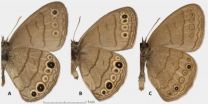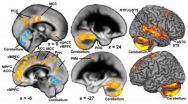(Press-News.org) New research from psychologists at the universities of Kent and Limerick has found that music that is felt to be 'beautiful but sad' can help people feel better when they're feeling blue.
The research investigated the effects of what the researchers described as Self-Identified Sad Music (SISM) on people's moods, paying particular attention to their reasons for choosing a particular piece of music when they were experiencing sadness - and the effect it had on them.
The study identified a number of motives for sad people to select a particular piece of music they perceive as 'sad', but found that in some cases their goal in listening is not necessarily to enhance mood. In fact, choosing music identified as 'beautiful' was the only strategy that directly predicted mood enhancement, the researchers found.
In the research, 220 people were asked to recall an adverse emotional event they had experienced, and the music they listened to afterwards which they felt portrayed sadness. It followed earlier research from the same team that identified that people do choose to listen to sad music when they're feeling sad.
Dr Annemieke van den Tol, Lecturer in Social Psychology at Kent's School of Psychology, explained that the study found that among the factors influencing music choice were its memory triggers for a particular event or time; its perceived high aesthetic value - which involves selecting music that the person considers to be beautiful; and music that conveys a particular message.
She said: 'We found in our research that people's music choice is linked to the individual's own expectations for listening to music and its effects on them.
'The results showed that if an individual has intended to achieve mood enhancement through listening to 'sad' music, this was in fact often achieved by first thinking about their situation or being distracted, rather than directly through listening to the music chosen.
'Indeed, where respondents indicated they had chosen music with the intention of triggering memories, this had a negative impact on creating a better mood.
'The only selection strategy that was found to directly predict mood enhancement was where the music was perceived by the listener to have high aesthetic value.'
INFORMATION:
The research, titled Listening to sad music in adverse situations: How music selection strategies relate to self-regulatory goals, listening effects and mood enhancement is published in the Psychology of Music. It was carried out by Dr van den Tol and Professor Jane Edwards, of the University of Limerick.
'Beautiful but sad' music can help people feel better
2014-02-19
ELSE PRESS RELEASES FROM THIS DATE:
Stratification determines the fate of fish stocks in the Baltic Sea
2014-02-19
With its narrow connection to the North Sea, strong currents, a large number of river estuaries and a bottom profile marked by ridges, basins and troughs, the Baltic represents an inland sea with highly different water qualities. The fact that these morphological and hydrographic conditions can also influence the fate of fish stocks has now been shown by a team of fisheries biologists from GEOMAR Helmholtz Centre for Ocean Research Kiel and the National Institute of Aquatic Resources (DTU Aqua) at the Technical University of Denmark. For their publication in the international ...
Dreams, deja vu and delusions caused by faulty 'reality testing'
2014-02-19
New research from the University of Adelaide has delved into the reasons why some people are unable to break free of their delusions, despite overwhelming evidence explaining the delusion isn't real.
In a new paper published in the journal Frontiers in Psychology, University of Adelaide philosopher Professor Philip Gerrans says dreams and delusions have a common link – they are associated with faulty "reality testing" in the brain's higher order cognitive systems.
"Normally this 'reality testing' in the brain monitors a 'story telling' system which generates a narrative ...
A challenge to the genetic interpretation of biology
2014-02-19
A proposal for reformulating the foundations of biology, based on the 2nd law of thermodynamics and which is in sharp contrast to the prevailing genetic view, is published today in the Journal of the Royal Society Interface under the title "Genes without prominence: a reappraisal of the foundations of biology". The authors, Arto Annila, Professor of physics at Helsinki University and Keith Baverstock, Docent and former professor at the University of Eastern Finland, assert that the prominent emphasis currently given to the gene in biology is based on a flawed interpretation ...
Two new butterfly species discovered in eastern USA
2014-02-19
Butterflies are probably best-loved insects. As such, they are relatively well studied, especially in the United States. Eastern parts of the country are explored most thoroughly. First eastern US butterfly species were described by the father of modern taxonomy Carl Linnaeus himself, over 250 years ago. For the last two and a half centuries, naturalists have been cataloguing species diversity of eastern butterflies, and every nook and cranny has been searched. Some even say that we learned everything there is to know about taxonomy of these butterflies.
Discovery of ...
Targeted treatment for ovarian cancer discovered
2014-02-19
Researchers at Women & Infants Hospital of Rhode Island have developed a biologic drug that would prevent the production of a protein known to allow ovarian cancer cells to grow aggressively while being resistant to chemotherapy. This would improve treatment and survival rates for some women.
The work coming out of the molecular therapeutic laboratory directed by Richard G. Moore, MD, entitled "HE4 (WFDC2) gene overexpression promotes ovarian tumor growth" was recently published in the international science journal Scientific Reports, a Nature publishing group.
"We ...
UNH research: Most of us have made best memories by age 25
2014-02-19
DURHAM, N.H. – By the time most people are 25, they have made the most important memories of their lives, according to new research from the University of New Hampshire.
Researchers at UNH have found that when older adults were asked to tell their life stories, they overwhelmingly highlighted the central influence of life transitions in their memories. Many of these transitions, such as marriage and having children, occurred early in life.
"When people look back over their lives and recount their most important memories, most divide their life stories into chapters ...
How stick insects honed friction to grip without sticking
2014-02-19
When they're not hanging upside down, stick insects don't need to stick. In fact, when moving upright, sticking would be a hindrance: so much extra effort required to 'unstick' again with every step.
Latest research from Cambridge's Department of Zoology shows that stick insects have specialised pads on their legs designed to produce large amounts of friction with very little pressure. When upright, stick insects aren't sticking at all, but harnessing powerful friction to ensure they grip firmly without the need to unglue themselves from the ground when they move. ...
Addicted to tanning?
2014-02-19
BOWLING GREEN, O.—They keep tanning, even after turning a deep brown and experiencing some of the negative consequences. Skin cancer is among the most common, preventable types of the disease, yet many continue to tan to excess.
Research from Lisham Ashrafioun, a Bowling Green State University Ph.D. student in psychology, and Dr. Erin Bonar, an assistant professor of psychiatry at the University of Michigan Addiction Research Center and a BGSU alumna, shows that some who engage in excessive tanning may also be suffering from obsessive-compulsive (OCD) and body dysmorphic ...
A forgotten model of the universe
2014-02-19
A paper published in EPJ H provides the first English translation and an analysis of one of Albert Einstein's little-known papers, "On the cosmological problem of the general theory of relativity." Published in 1931, it features a forgotten model of the universe, while refuting Einstein's own earlier static model of 1917. In this paper, Einstein introduces a cosmic model in which the universe undergoes an expansion followed by a contraction. This interpretation contrasts with the monotonically expanding universe of the widely known Einstein-de Sitter model of 1932.
The ...
Family problems experienced in childhood and adolescence affect brain development
2014-02-19
New research has revealed that exposure to common family problems during childhood and early adolescence affects brain development, which could lead to mental health issues in later life.
The study led by Dr Nicholas Walsh, lecturer in developmental psychology at the University of East Anglia (UEA), used brain imaging technology to scan teenagers aged 17-19. It found that those who experienced mild to moderate family difficulties between birth and 11 years of age had developed a smaller cerebellum, an area of the brain associated with skill learning, stress regulation ...



